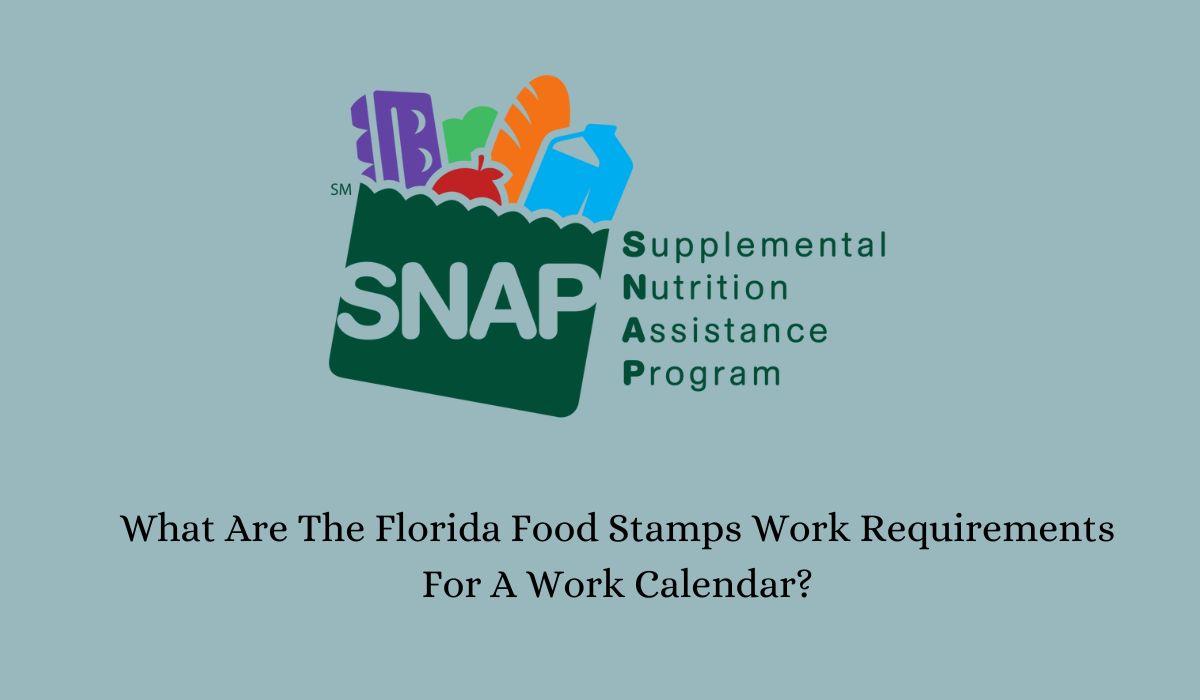In Florida, as in many other states, individuals and families who receive food assistance through the Supplemental Nutrition Assistance Program (SNAP), commonly known as food stamps, are subject to certain work requirements.
These requirements are designed to encourage employment and self-sufficiency among able-bodied adults without dependents (ABAWDs). It is important for beneficiaries to understand these requirements, particularly in terms of maintaining a work calendar, to continue receiving assistance without interruption.
Florida’s SNAP Work Requirements
The Florida Department of Children and Families (DCF), which administers the SNAP program, sets forth work requirements for certain recipients.
These requirements typically apply to ABAWDs – individuals between the ages of 18 and 49 who are not pregnant, do not have a disability, and do not have dependents living with them.
Key Work Requirements
- Work Hours: ABAWDs are required to work or participate in work-related activities for at least 20 hours per week or 80 hours per month. This can include employment, volunteer work, or participation in a state-approved work program.
- Workfare Program: Some recipients may be required to participate in workfare, which involves working in exchange for their SNAP benefits.
- Job Search: Beneficiaries are often required to actively seek employment and may need to register with the state’s job placement and training services.
Find Out: Do Florida SNAP Benefits Expire?Maintaining a Work Calendar
- Recording Work Hours: Beneficiaries should maintain a detailed work calendar, documenting the hours worked each day. This record is crucial for demonstrating compliance with the work requirements.
- Documenting Work-Related Activities: In addition to regular employment, other activities like job training, education related to employment, or volunteer work should also be recorded in the work calendar.
- Proof of Participation: Keeping a log of job interviews, job applications submitted, and any job training sessions attended is essential. This documentation serves as proof of active job search efforts.
Exemptions and Special Considerations
- Exemptions: Certain individuals may be exempt from these work requirements, including those who are pregnant, disabled, caring for a child or incapacitated family member, or are already working more than 30 hours per week.
- Time Limits: ABAWDs who do not meet these work requirements may only receive SNAP benefits for three months in a 36-month period, unless they are working or participating in a work program.
- Reporting Changes: Beneficiaries must report any changes in their employment status or work hours to the DCF, as this can affect their eligibility for SNAP benefits.
Conclusion
For SNAP recipients in Florida, understanding and adhering to the work requirements is essential. Maintaining a detailed work calendar is a practical way to ensure compliance and avoid potential disruptions in benefits.
Beneficiaries must be stay informed about their responsibilities and seek assistance from DCF if they have questions or need help fulfilling these requirements.
By meeting these work obligations, SNAP recipients can take positive steps towards self-sufficiency while receiving the support they need.
